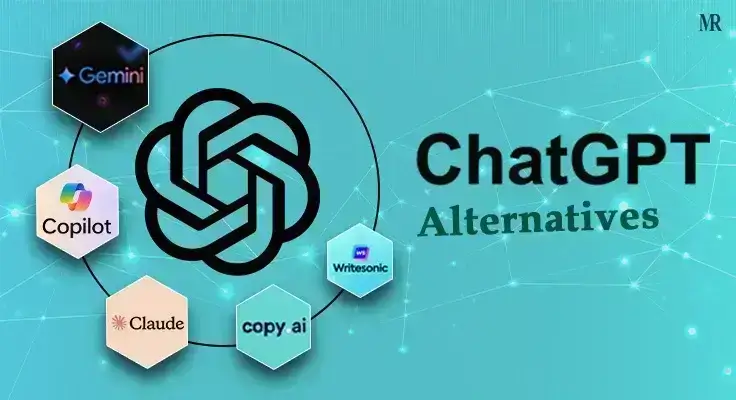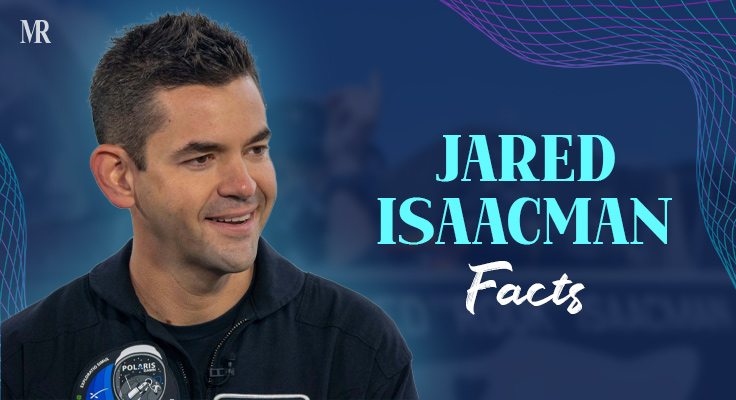ChatGPT truly changed how we work and create. It made AI real for millions. However, the AI world is much bigger now. New tools emerge constantly. Many users seek ChatGPT alternatives for specific reasons. They need specialized features. Sometimes, pricing or data privacy matters more. Others wish to avoid relying on just one vendor.
This post will compare the top 5 ChatGPT alternatives. We explore their unique strengths. We will show how these tools meet diverse needs. You will find valuable options to boost your productivity. Consider these options as smart investments for your digital future.
Understanding the Need for Alternatives
ChatGPT truly changed how we interact with AI. However, even great tools have limits. First, ChatGPT is a generalist. This means it handles many tasks but might not specialize in one area. Imagine a Swiss Army knife. It has many tools, but a dedicated saw cuts wood better. Similarly, specialized tasks often need dedicated AI.
Sometimes, ChatGPT gives wrong information. We call these “hallucinations.” They are like creative guesses, not facts. This makes fact-checking crucial, especially for important work. Also, advanced features often cost money. Free versions offer a taste, but full power comes with a price tag. Data privacy is another point to consider. We must always think about where our information goes.
The AI world is growing super fast. New tools appear daily. Many of these ChatGPT alternatives focus on specific needs. They offer cutting-edge features you might not find elsewhere. This vibrant competition pushes innovation. Businesses and individuals now have many more powerful choices. They can pick tools that perfectly match their goals.
Criteria for Evaluation
To truly understand the value of various ChatGPT alternatives, we must evaluate them carefully. I approach this like a financial analyst studying different investment opportunities. Each AI tool represents a potential asset.
First, we examine their core functions. What can each tool do? This includes text generation, coding, summarization, or even image creation. Some tools excel at specific tasks, much like a specialized equity fund. Next, we consider who benefits most. Is it a writer, a developer, or perhaps a marketer? We identify their ideal “use cases.”
We also look at cost. Do they offer free versions? What are the subscription models? Ease of access is important too. A complex tool, even if powerful, might deter users. Then, we assess accuracy and reliability. Does the AI provide correct information consistently? We prioritize tools minimizing “hallucinations,” or incorrect outputs.
The user interface and overall experience matter greatly. An intuitive design enhances productivity, just like a well-designed financial dashboard. We also check integration capabilities. Can it work smoothly with other tools you already use? Finally, ethical considerations and safety are paramount. We ensure the AI acts responsibly. These factors help us pick the best ChatGPT alternatives for diverse needs.
Here are the 10 ChatGPT alternatives
| Alternatives | Owned By | Launched In |
| Google Gemini | Google Deepmind | 2023 |
| Microsoft Copilot | Microsoft | 2023 |
| Claude | Anthropic | 2023 |
| Copy.ai | Copy.ai | 2020 |
| Writesonic | Writesonic Inc. | 2020 |
| Perplexity | Perplexity AI, Inc. | 2022 |
| Meta AI | Meta Platforms, Inc. | 2023 |
| DeepSeek | DeepSeek (High-Flyer) | 2025 |
| Grok | xAI | 2023 |
| Chatsonic | Writesonic | 2022 |
1. Google Gemini
Google Gemini is Google’s top AI brain, launched in late 2023. It will constantly improve through 2025. Unlike older AI, Gemini “thinks” before it answers. This provides more accurate and reliable responses. It handles text, pictures, videos, and sounds. This makes it a very adaptable tool. Gemini helps in many digital and business tasks.
Why is it strong?
- It reasons deeply for complex tasks.
- It understands and creates content using text, images, video, and audio. This is called “multimodal.”
- It reads huge amounts of information, up to 2 million tokens (like 1,500 pages!). This is great for big documents.
- It works perfectly with Google tools like Gmail and Docs.
- Gemini excels at coding, math, and creative writing.
What special things can it do? (Key Features)
Gemini processes many types of information at once. It can summarize documents with charts. It can analyze diagrams, too. Its huge memory window helps it understand long contracts. This means it handles massive datasets easily.
Furthermore, Gemini works right inside Google Workspace. You can draft emails in Gmail. You can summarize documents in Docs. You can even generate images for presentations. This saves you valuable time. Moreover, advanced “Deep Think” mode helps it research many sources. It performs tasks like booking appointments using real-time web data. These ChatGPT alternatives offer powerful, modern AI.
Who should use Gemini? (Ideal Use Cases)
Google Gemini is perfect if you use Google Workspace every day. It truly helps teams needing to handle large data. Think about lawyers analyzing many documents. It helps researchers cross-reference charts and images. Gemini also aids in deep research. It is excellent for creative work with different types of media.
It’s also ideal for automating business tasks. This includes software developers and educators. If you want AI built into your email or calendar, Gemini is for you. It offers a unified, smooth experience.
What are its advantages? (Pros)
- It handles text, images, and audio seamlessly. This is a big win.
- It works perfectly with Google Workspace apps.
- It reads very long documents, unlike most other AI.
- Advanced thinking features help with deep research.
- It accesses real-time web information. This makes it very timely.
What are its limitations? (Cons)
- It sometimes has daily usage limits.
- Some advanced features are not global yet. For example, some integrations lack Polish language support.
How much does it cost? (Pricing Model)
You can try a basic version of Gemini for free. For more power, Google AI Pro (Gemini Advanced) costs $19.99 per month. It gives you more features and storage. Google AI Ultra costs $249.99 per month. This tier offers the most features and early access. Businesses can also get Gemini bundled with Google Workspace plans, starting from $20 per user monthly. This provides a clear path to scalable AI integration.
Why is Gemini unique? (Unique Selling Proposition)
Gemini stands out because it combines many things. It understands diverse data types. It processes huge amounts of information. Importantly, it works directly inside Google apps. This means you do not need other programs. Gemini’s AI helps you immediately within Gmail or Docs. It handles gigabyte-sized data. It generates video and images. It also performs real-time research. This makes it uniquely valuable among ChatGPT alternatives. It ensures a strong return on your AI investment
2. Microsoft Copilot
Microsoft Copilot is a smart AI assistant. It lives inside Microsoft 365 apps. Think of Word, Excel, Outlook, and Teams. It launched in 2025, using powerful AI like GPT-4. Copilot boosts your daily work. It automates tasks and summarizes content. It also helps analyze data and improves teamwork. Its core strength is its deep connection to your Microsoft tools. This makes it a powerful choice among ChatGPT alternatives.
What special things can it do? (Key Features)
Copilot works right inside your Microsoft 365 apps. You use it in Word, Excel, and Outlook. It even helps with Windows 11. It drafts documents and emails. It summarizes long content fast. In Excel, Copilot explains formulas. It finds trends and creates charts easily. For meetings, Copilot transcribes live discussions. It summarizes key points and lists action items. You can also build custom AI agents. These automate business processes with Copilot Studio.
Who should use Copilot? (Ideal Use Cases)
Copilot is perfect if you live in the Microsoft world. It helps those using Microsoft 365 daily. This includes busy professionals handling many emails. Project managers can summarize meetings quickly. Finance teams can automate compliance reports. Healthcare and education fields also benefit. Small and large businesses can transform their workflows. It is most useful for users seeking AI insights within their Microsoft workspaces.
What are its advantages? (Pros)
- It automates many work tasks, saving time.
- It works seamlessly inside Microsoft apps.
- It offers advanced data analysis in Excel.
- It streamlines team communication.
- It adapts to how you work.
What are its limitations? (Cons)
- It needs a stable internet connection.
- Data access can raise privacy questions.
- Advanced plans can be expensive for small firms. These plans cost $20-30 per user monthly.
- Over-reliance on AI might reduce manual skills.
How much does it cost? (Pricing Model)
A basic Copilot version is free. Copilot Pro costs $20 per user each month. It gives priority AI access and better Microsoft 365 web integration. For full business use, Microsoft Copilot for Microsoft 365 costs $30 per user monthly. This includes enterprise security. Copilot Studio, for custom AI, costs $200 per tenant. Remember, a 5% price increase is expected in April 2025. This impacts your total cost.
Why is Copilot unique? (Unique Selling Proposition)
Microsoft Copilot’s strength is its deep integration. It works within all Microsoft 365 apps. Unlike general ChatGPT alternatives, Copilot is an AI “co-pilot.” It provides real-time insights from your own company documents. It automates tasks like meeting summaries directly in your workflow. This saves measurable time daily. It helps organizations transform how they work without complex setups. This deep integration offers a clear financial advantage in terms of efficiency.
3. Claude
Claude is a top AI platform from Anthropic. It creates natural, human-like conversations. It prioritizes safety, ethics, and clear AI behavior. Claude uses advanced language models. It excels at text and code generation. It also handles complex reasoning and multimodal analysis. Claude’s strong safety rules truly make it stand out. This ensures responsible AI use. It minimizes harmful or biased outputs. In 2025, Claude is a vital helper. It’s for tasks needing trustworthiness and deep understanding.
What special things can it do? (Key Features)
Claude uses “extended reasoning” to think deeply before answering. This helps it solve complex problems better than many rivals. It can understand images, too. It extracts insights from charts or notes. Claude also provides advanced coding support. It generates, debugs, and reviews code. It even turns images into website code (JSON/HTML).
Furthermore, Claude reads very large documents. It handles up to 200,000 tokens (like whole books) in one go. Claude also has strong safety rules. These “Constitutional AI” principles promote transparency. They make interactions consistently safe. This makes Claude a leading option among ChatGPT alternatives.
Who should use Claude? (Ideal Use Cases)
Claude suits professionals needing advanced reasoning. It helps teams needing reliable coding support. Developers use it to speed up coding. Business analysts use it for large documents. Researchers analyze legal contracts or complex papers. Companies with strict security needs find it perfect. This includes firms needing ethical AI for sensitive tasks. Content creators also get factual, well-written text. Teams use it for shared projects and organized work. Claude truly serves those needing secure, reliable AI.
What are its advantages? (Pros)
- It has strong safety rules. This makes it ideal for professional use.
- It excels at hard thinking tasks and long document analysis.
- It offers advanced coding and image interpretation.
- It has an easy-to-use interface.
- Its team tools help organize shared work.
What are its limitations? (Cons)
- Free or Pro plans have usage limits. Free users get about 50 messages daily. Pro users get about 45 messages every five hours. This limits very intensive projects.
- Sometimes, strict safety filters make responses too cautious. They might miss details.
How much does it cost? (Pricing Model)
Claude offers different price plans. A basic free tier gives about 50 messages daily. The Pro plan costs $20 monthly. It offers 5x more usage and all Claude models. A Max plan costs $100-$200 monthly for heavy use. Team and Enterprise plans are custom, starting around $25 per user. API access is pay-as-you-go. Remember to consider your budget. Analyze the ROI for intensive use cases.
Why is Claude unique? (Unique Selling Proposition)
Claude’s strong point is its focus on ethical AI and deep reasoning. It is the “thinking person’s AI.” It leads to complex problem-solving. This includes coding and legal analysis. It uses an extended reasoning engine. It has huge context windows. Claude prioritizes accuracy and clear output. Unlike other ChatGPT alternatives like ChatGPT, it focuses on trust. New features like native Research further solidify its position. It helps organizations with strict security needs. It offers a transparent, adaptable solution for demanding professionals.
4. Copy.ai
Copy.ai is a smart AI platform. It creates content and automates writing tasks. It uses advanced AI models like GPT-4 and Claude 3. It generates high-quality text in seconds. This text is perfect for marketing and sales. Copy.ai excels at quick, versatile content. It offers strong brand voice customization. It also supports team collaboration. This makes it an easy-to-use tool. Copy.ai acts as a unified “Go-To-Market” (GTM) platform. It creates great content. It also helps with lead nurturing and sales. This positions it strongly among ChatGPT alternatives.
What special things can it do? (Key Features)
Copy.ai makes many content types. It creates blog posts and emails. It also writes social media updates. It uses over 90 special templates. Furthermore, it automates marketing tasks. This includes lead nurturing and email sending. It supports content in over 25 languages. This helps global teams. It connects with CRMs and other tools. This streamlines your existing work.
Who should use Copy.ai? (Ideal Use Cases)
Copy.ai is best for marketing teams. They can produce huge amounts of content fast. Small business owners find it useful too. They can manage their online presence without big teams. Content creators and freelancers get quick drafts. They can tailor tone and style easily. Sales teams use it for prospecting and outreach. Enterprises also benefit from its collaboration tools. It manages brand consistency at scale.
What are its advantages? (Pros)
- It saves much time on content creation.
- It is very easy to use for teams.
- It offers deep customization for brand voice.
- It creates many content types.
- It supports over 25 languages.
What are its limitations? (Cons)
- Generated content sometimes needs editing. This is true for complex topics.
- Some users report occasional lags. It lacks built-in SEO checkers.
How much does it cost? (Pricing Model)
Copy.ai offers flexible plans. A free plan gives 2,000 words per month. The Pro/Starter plan costs $49 monthly ($36 if paid yearly). It offers unlimited words and premium features. Advanced/Team plans cost $249 monthly ($186 yearly). These plans add more users and features. Enterprise plans are custom. They offer advanced security. Assess your content volume to choose wisely. Maximize your ROI by selecting the right tier.
Why is Copy.ai unique? (Unique Selling Proposition)
Copy.ai stands out as a “Go-To-Market” (GTM) AI platform. It combines content creation and sales automation. Its USP is its integrated GTM approach. Unlike general ChatGPT alternatives, Copy.ai has specialized workflows. It manages the entire GTM pipeline. Its brand voice feature is also unique. It deeply encodes your company’s tone. This ensures consistent branding everywhere. Copy.ai also offers many workflow templates. This reduces the need for complex prompting. Its collaboration tools help large teams. It integrates well with business systems. This drives tangible efficiency gains.
5. Writesonic
Writesonic is a full-service AI platform for content creation. It helps individuals and marketing teams. As of 2025, it uses AI like GPT-4. Writesonic quickly generates high-quality, SEO-ready text. This includes blog posts and ad copy. Its strengths are its many templates. It offers strong SEO tools. It customizes brand voice. It also automates workflows. Writesonic accelerates content output. It maintains brand consistency. It also supports many languages. These features make it a strong option among ChatGPT alternatives.
What special things can it do? (Key Features)
Writesonic writes long-form content. It generates SEO-optimized articles and ebooks. It offers over 100 templates for marketing copy. This includes ads and product descriptions. It helps with keyword research. It integrates with SurferSEO. It also performs site audits. It ensures your content ranks high. You can train Writesonic on your brand voice. This keeps your tone consistent. It supports bulk content creation. It publishes directly to platforms like WordPress. It even has a Chrome extension for writing anywhere.
Who should use Writesonic? (Ideal Use Cases)
Writesonic is great for content marketers. They can create SEO-driven articles fast. Small businesses and e-commerce stores use it. They produce product descriptions at scale. Digital agencies find it useful. They manage content for many clients. Freelancers get quick drafts for diverse content. Global enterprises also benefit. They can create content in over 20 languages. This helps them reach new markets.
What are its advantages? (Pros)
- It creates high-quality, SEO-friendly content.
- It offers over 100 versatile templates.
- It supports more than 20 languages.
- It automates tasks and integrates with other tools.
- It helps with bulk content generation.
What are its limitations? (Cons)
- New users might find its many tools overwhelming.
- AI-generated content often needs human review. It can sometimes sound generic.
- Most advanced features are only on paid plans.
How much does it cost? (Pricing Model)
Writesonic offers flexible plans. A free trial provides limited words. The Lite plan costs $39 monthly. It includes 15 articles. The Standard plan costs $79 monthly. It offers 30 articles and Google integrations. Professional plans start at $199 monthly. They support up to 5 users. Custom Enterprise plans are also available. Always consider the potential ROI. A paid plan can boost your content output significantly.
Why is Writesonic unique? (Unique Selling Proposition)
Writesonic’s main strength is its “all-in-one” approach. It is a full Go-To-Market (GTM) AI platform. It combines content creation with marketing automation. Unlike general ChatGPT alternatives, it has over 100 marketing-focused templates. It offers deep SEO integration. It performs site audits. It directly publishes to platforms like WordPress. It also controls brand voice. It supports many languages. Writesonic has AI agents for competitor analysis. They also do fact-checking. This goes beyond simple research. It provides a comprehensive solution for content scaling.
Choosing the Right Alternative for You
As an AI expert, I always emphasize this: no single AI fits all. Think of it like choosing a smart financial move. You would not invest blindly. Instead, you’d match the investment to your goals. The “best” AI tool depends entirely on your specific needs. You want to pick the tool that maximizes your efficiency.
Here is how to select your ideal ChatGPT alternative:
- For General Chats and Deep Research: Need a versatile AI for broad questions? Google Gemini, Claude, and Microsoft Copilot are excellent. They offer great conversations and strong research skills. Gemini, for instance, uses Google’s real-time data. This helps you make faster, smarter decisions.
- For Creating Content (Marketing & Blogs): Are you writing marketing copy or blog posts? Specialized ChatGPT alternatives are gold. Copy.ai and Writesonic work wonders. They have templates for marketing content. Jasper AI also helps scale content output. These tools aim to boost your content marketing ROI.
- For Boosting Productivity and Easy Integration: For smooth daily tasks and integrated workflows, consider Google Gemini and Microsoft Copilot. They blend well with their own ecosystems. Gemini works with Google Workspace. Copilot enhances Microsoft 365 apps. This saves time, turning minutes into real gains.
Your specific goals should guide your AI choice. I urge you to try the free versions. Experiment with these ChatGPT alternatives. See which one truly improves your work. This hands-on approach ensures your time and resources yield the best returns.
The Future of AI Chatbots
The world of AI is always evolving. The market for ChatGPT alternatives will only grow. This dynamic environment brings exciting changes. We see clear trends shaping AI’s tomorrow.
Here are key trends shaping the future:
- More Specialized Tools: AI is becoming highly focused. Some AI helps doctors; others aid lawyers. This means better, more precise help. The AI chatbot market is growing, from $8.3 billion in 2024 to an estimated $10-15 billion in 2025.
- Improved Multimodal Capabilities: Soon, AI will understand more than just words. It will process images and sounds. Imagine showing AI a broken part; it could explain the fix. Gartner predicts 40% of new enterprise chatbots will be multimodal by 2027.
- Greater Integration: AI tools will connect seamlessly with your other software. They will work inside your email or spreadsheets. This saves time and boosts productivity.
- Focus on Ethical AI: Trust is vital. Developers are making AI fairer and more transparent. We will understand AI decisions. Companies are working to prevent bias. This builds user trust.
The AI field keeps evolving. Staying informed is crucial. Today’s ChatGPT alternatives will lead to even better innovations.
Key Takeaways
Many people still doubt AI. They feel it lacks a “human touch.” Some worry about accuracy. Others find it complex or too generic. We understand these concerns deeply. However, ignoring AI’s true potential is a missed opportunity. This is not about replacing human intellect. It is about empowering it.
This blog shows a clear path forward. The era of one-size-fits-all AI is fading. Our deep dive into these ChatGPT alternatives reveals a critical truth: specialized AI now offers precise solutions. Think of it as refining your investment portfolio. You diversify, seeking tools that match exact needs. You would not use a single broad fund for every financial goal. Similarly, you now have choices beyond general AI.
Embrace these specialized tools. Google Gemini integrates your workflow. Microsoft Copilot elevates business productivity. Claude offers ethical, deep reasoning. Copy.ai and Writesonic are content powerhouses. Each addresses specific pain points. They offer measurable returns on your digital effort. By choosing wisely, you leverage AI’s actual power. This translates directly into better efficiency and higher value. Do not just use AI; invest in the right AI. Your future productivity depends on it.












